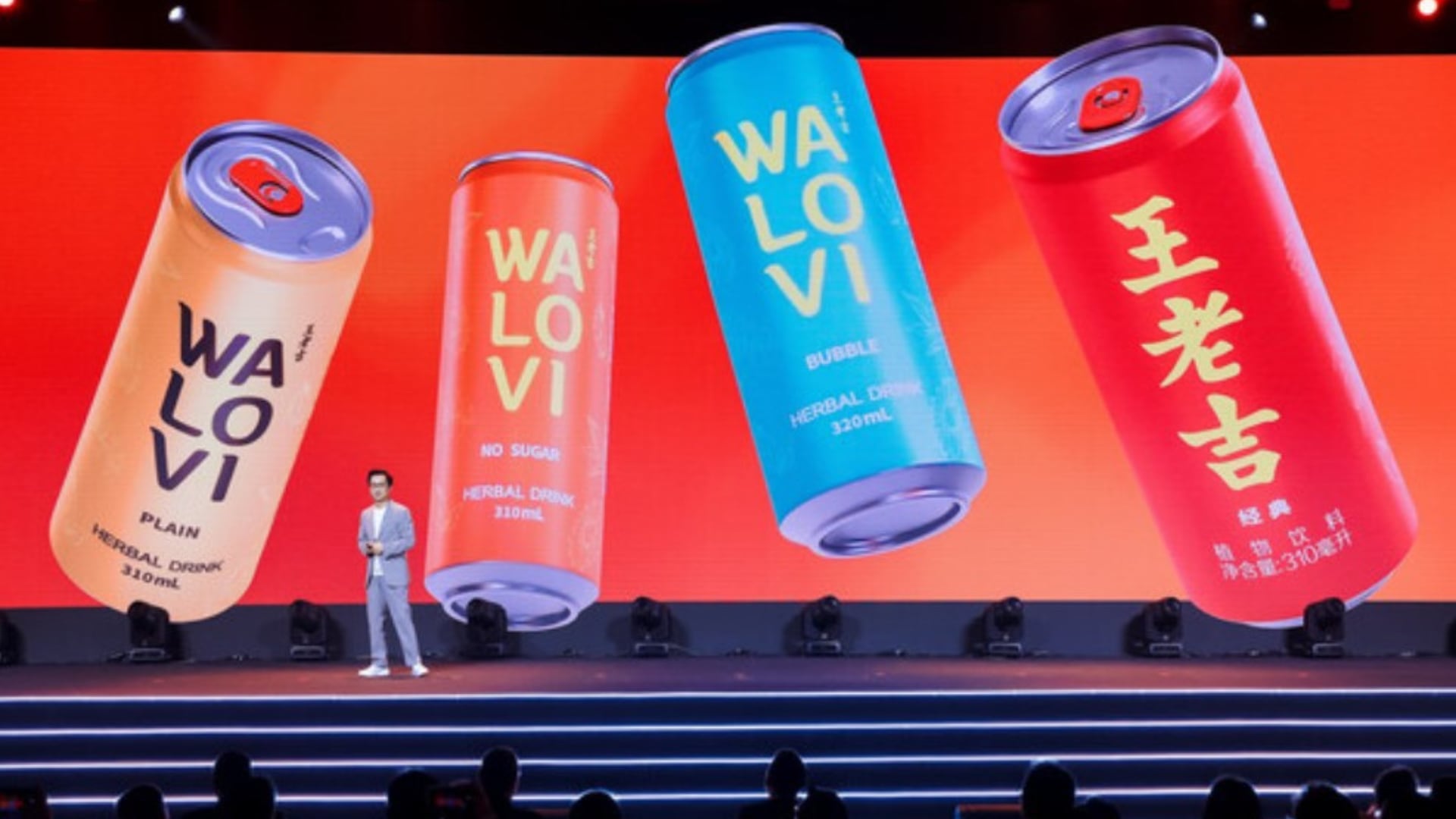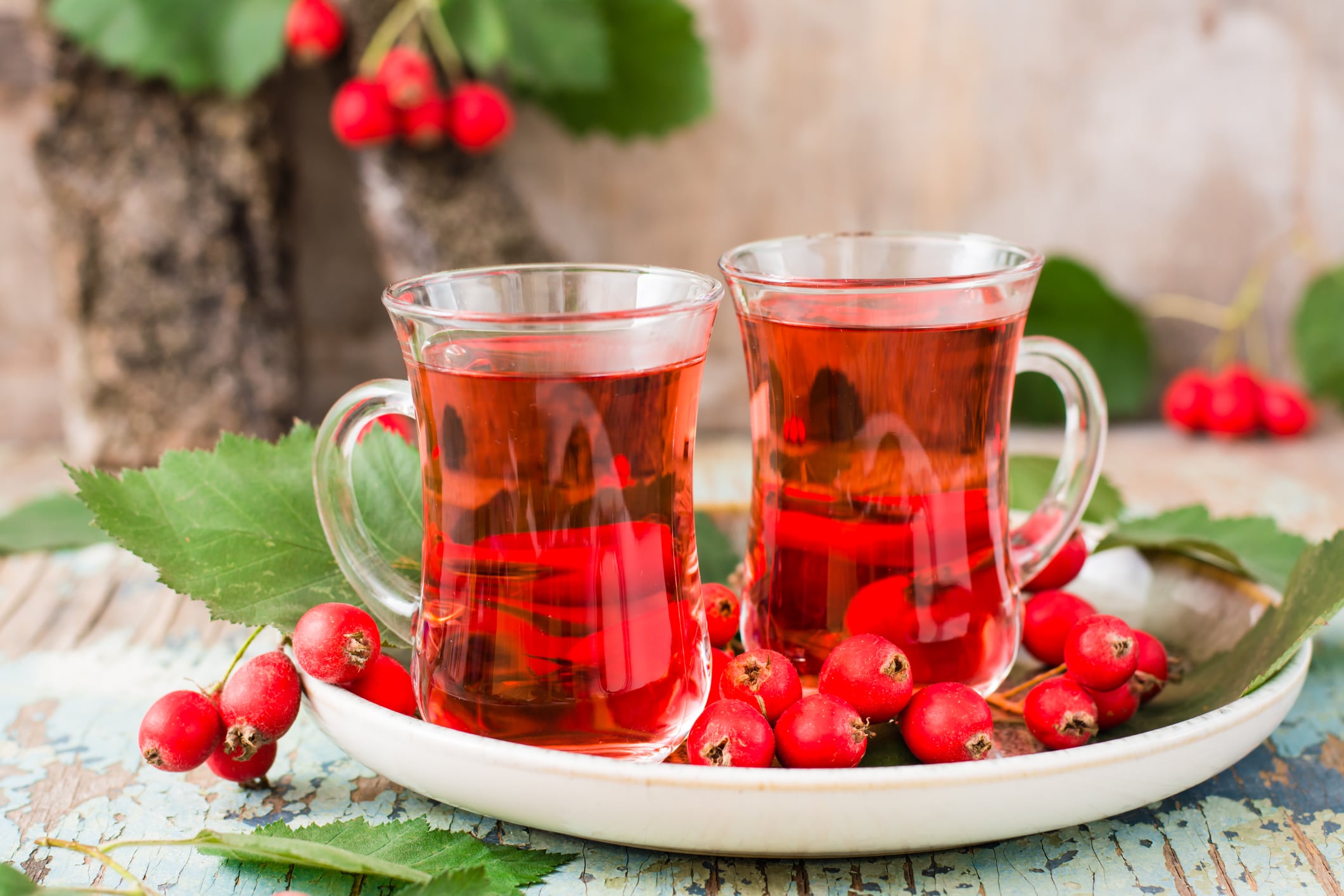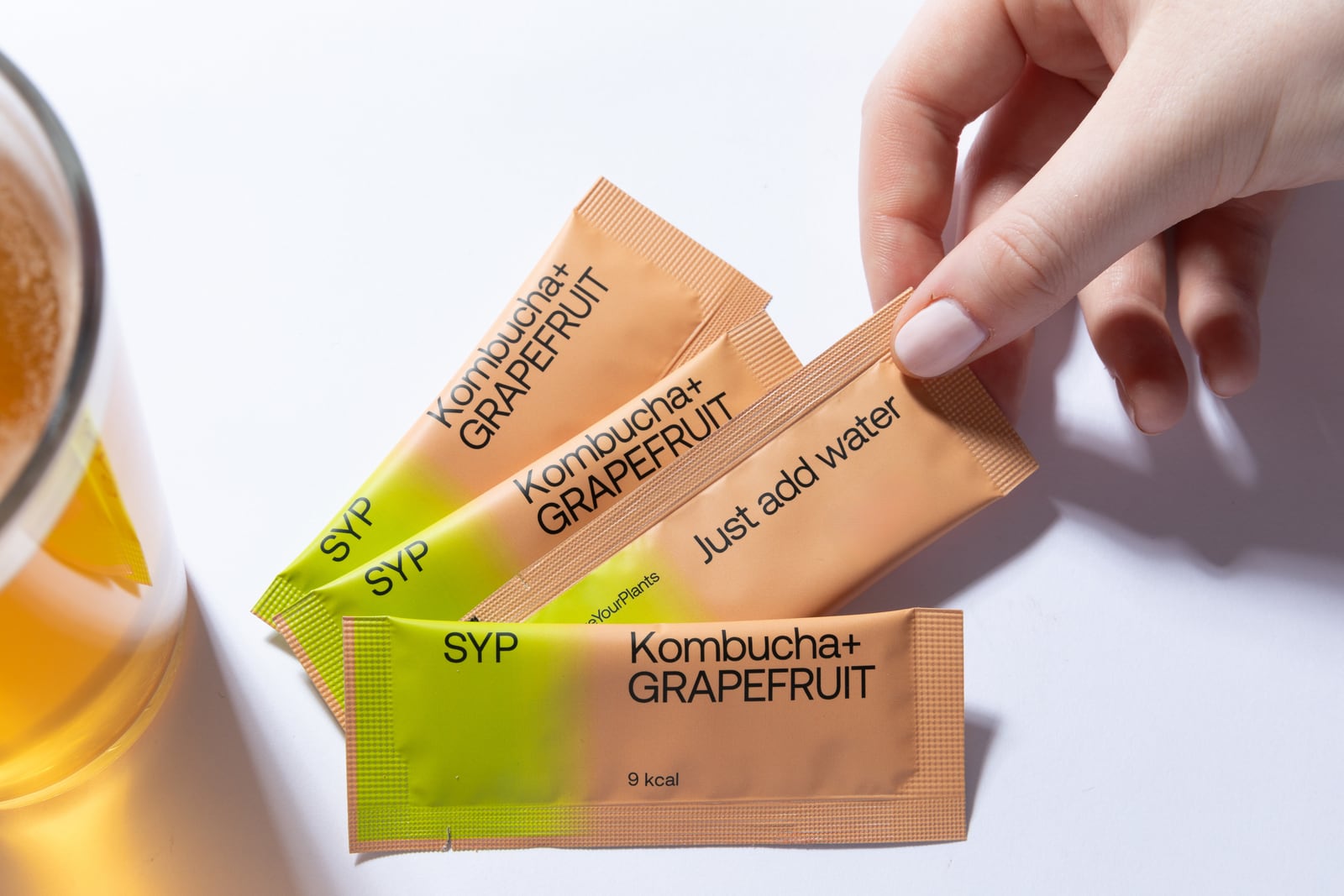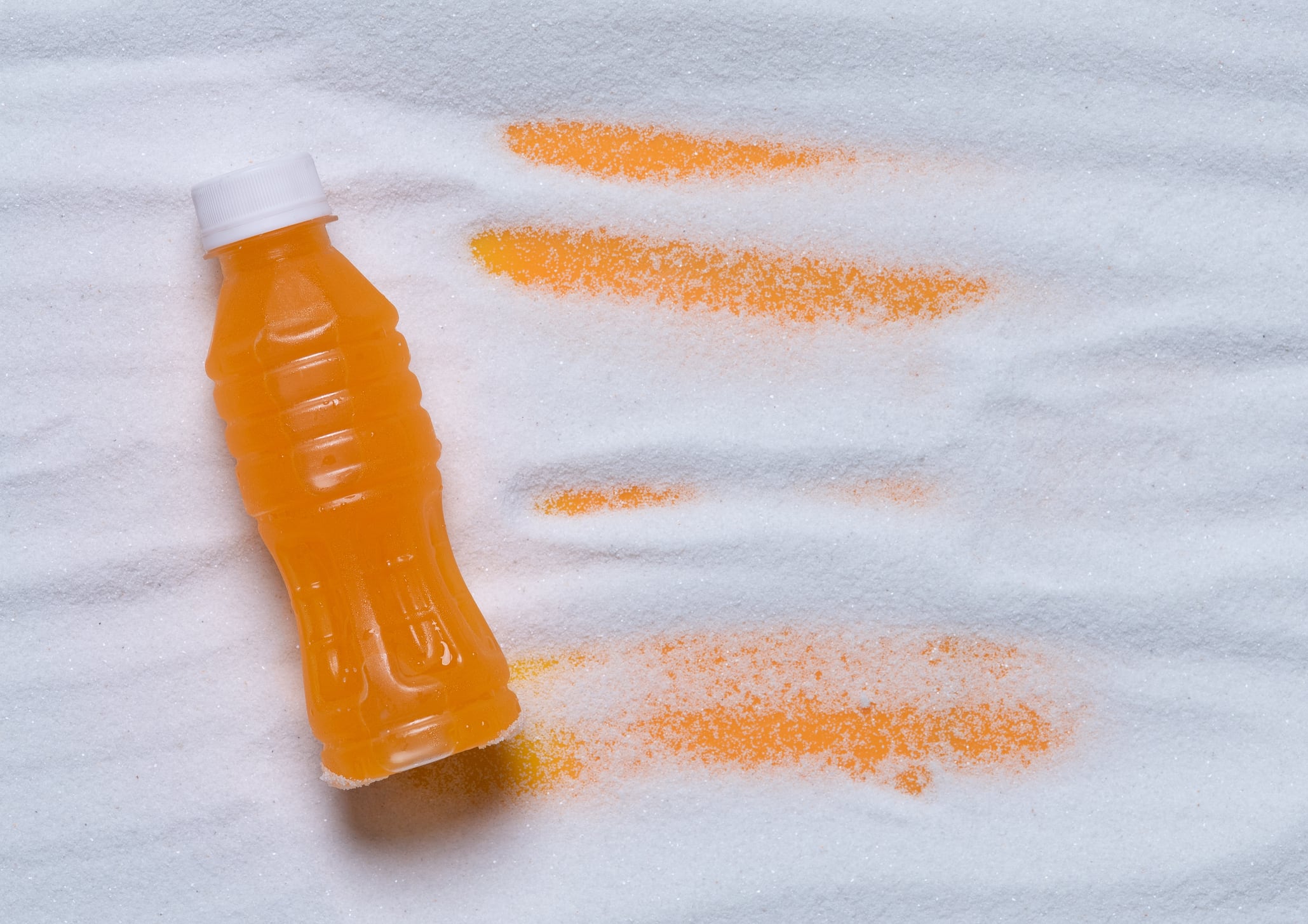WALOVI is the “English brand identity” of Guangzhou-based Wanglaoji for penetrating into international markets.
Four products were introduced at the Shanghai launch event on Aug 18: Classic (Ruby Roselle can), No-Sugar (Dawn Orange can), Plain (Golden Glaze can), and Bubble (Misty Blue can).
Each design integrates Eastern colour aesthetics with modern beverage trends such as sugar-free and sparkling formats, blending traditional herbal wisdom with contemporary appeal, said the firm.
“China’s Wanglaoji, World’s WALOVI”
According to Wanglaoji, the latest developments mark a major brand upgrade as the company seeks to present a unified global image and products tailored to diverse consumer demands.
Wanglaoji and WALOVI are essentially the same in flavour and formula, with the latter created for establishing closer connections with global consumers, according to Weng Shaoquan, Chairman of Guangzhou Wanglaoji Great Health Industry Co Ltd, in a previous interview with us.
Vice General Manager Ye Jizeng highlighted two key global trends driving the launch: the growing preference for healthy, natural beverages and the rising demand for low- or no-sugar options.
He emphasised that WALOVI, as an original Chinese beverage brand with a 197-year history, remains committed to natural ingredients and health-first principles.
“We will establish model markets for deep distribution and brand building. Today’s launch is a strategic milestone in our global blueprint, with systematic preparations across product development, brand enhancement, channel expansion, and supply chain optimisation,” Ye said.
WALOVI aims to show the world that natural flavours lead the way, and healthy options can also taste great, added Ye.
Indeed, market research indicates that WALOVI is on the right track.
According to Frost & Sullivan, WALOVI has led the global plant beverage sector in sales for five consecutive years. In China, it holds nearly 50% of the plant drink market, while overseas sales have expanded 6.5 times over the past decade, achieving an annual compound growth rate of more than 25%.
Global partnerships to meet international demand
At the launch, Wanglaoji also signed agreements with its first batch of WALOVI partners, including Meituan Delivery, Eleme, Dianping, Ocean Engine, and Jiaye Trading Canada Corp. The new product line will soon be available in Southeast Asia, North America, Europe, and Oceania.
Earlier this year in May, Wanglaoji formalised agreements with Baosteel Can Making (Malaysia) Sdn. Bhd. and P.C.I. Professional Canning Industries Sdn. Bhd. at Baosteel’s Selangor facility, strengthening its local manufacturing footprint.
Baosteel Can Making, a subsidiary of Shanghai Baosteel Packaging, runs advanced production lines with an annual capacity of 800 million cans, while P.C.I. brings extensive regional packaging expertise.
These partnerships reflect WALOVI’s “glocalisation” strategy, combining brand heritage with local production efficiency to enhance supply chain resilience and expand accessibility across Southeast Asia.
Through its Product-Channel-Brand-Culture (PCBC) global strategy, Wanglaoji aims to reshape the global beverage landscape by delivering natural, sustainable Eastern plant-based drinks. With WALOVI, the brand envisions not only healthier consumer choices but also greater cultural exchange through beverage consumption.
With consumers increasingly seeking beverages that offer specific health benefits beyond hydration, the herbal tea category has ample growth opportunities, according to research firm Data Insights Market.
“The rising popularity of online sales channels provides new opportunities for reaching wider consumer bases and reducing reliance on traditional retail channels. The market is also seeing a surge in innovation, with companies constantly developing new flavours and functional benefits to cater to evolving consumer tastes,” according to the research firm’s report Strategic Planning for Chinese Herbal Tea Industry Expansion, May 9, 2025.
“Furthermore, increased awareness of the health benefits of herbal teas, driven by both traditional medicine and scientific research, is providing strong support for this growth trend. The market is increasingly influenced by marketing strategies promoting the cultural heritage and traditional medicinal values associated with herbal tea.”





